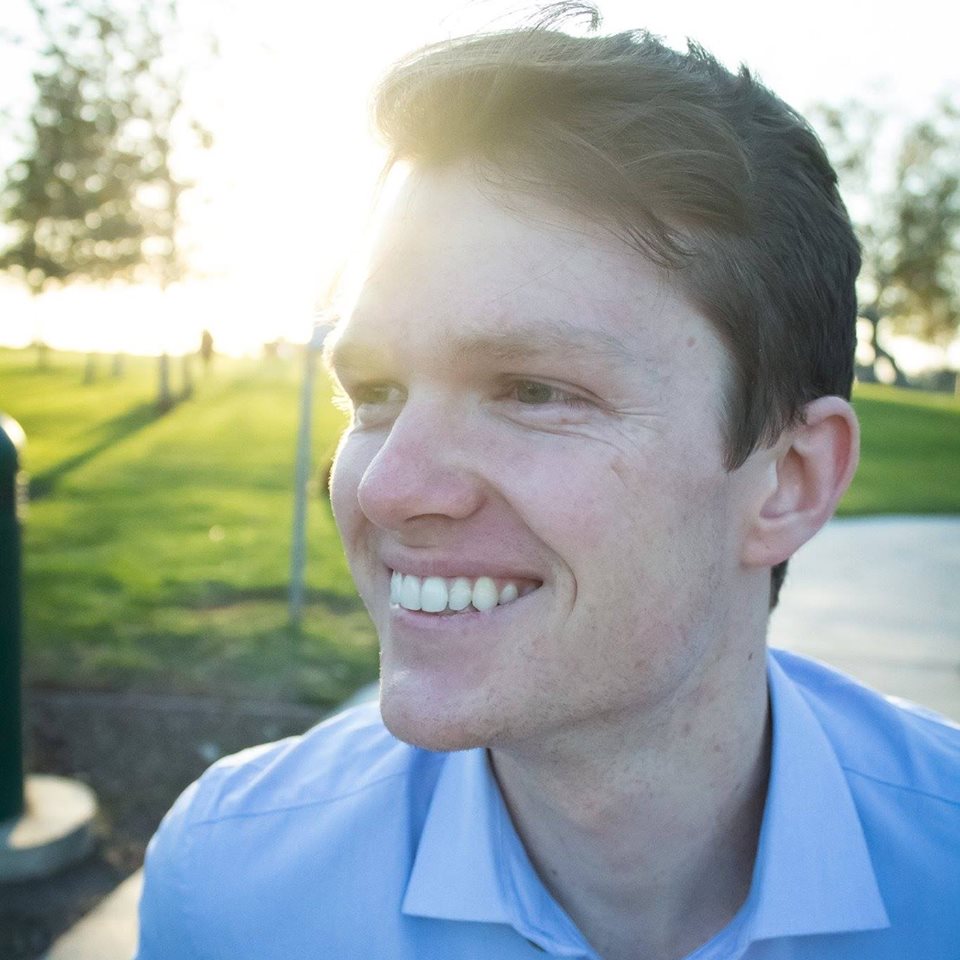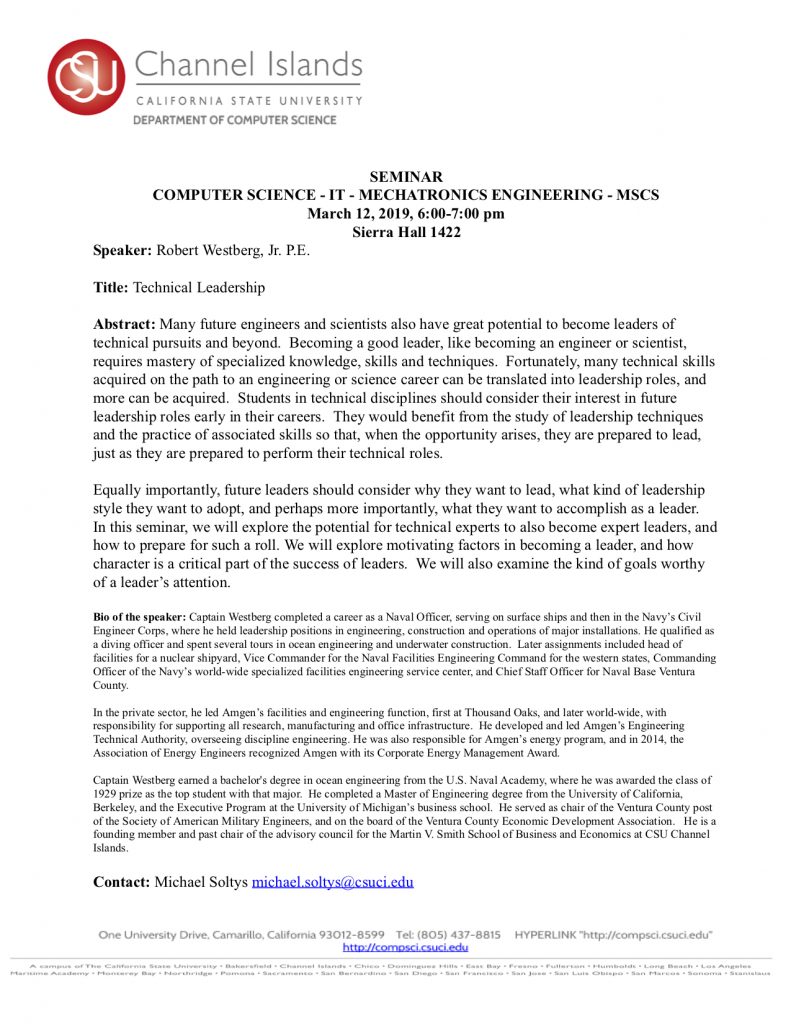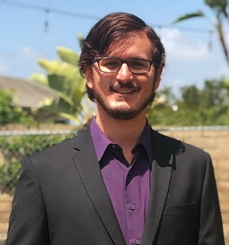
Graduating with a BS in computer science and a minor is Mathematics in May 2019. While at CI, worked as a PLTL leader for Comp 105, 150, 151, and 162. He was most known for his mastery of the Comp 162 material. His capstone is the development of an Android based business networking application, utilizing Near Field Communication hardware. His adviser is Jason Issacs.
In Chase’s words: I love studying psychology, religion, philosophy, and history in my off time. (I’m a big fan of Dr. Peterson’s work, Dr. Haidt’s work, and many others). I hope to one day work with machine learning/artificial intelligence, to build machines focused around communicating and interacting with humans. This is, and has been, my dream since I was in high school. I’m currently taking 20 units of upper division stem classes and working two jobs – totaling to 70-85 hours a week depending on my homework load. I think AJ and Anna are amazing professors, their challenging classes defined me as a programmer, and forced me to greatly expand my skills. Their experience has been invaluable to me.



























